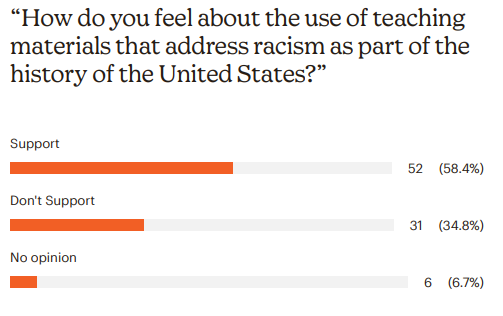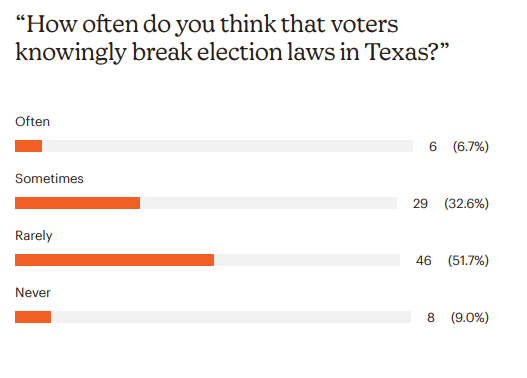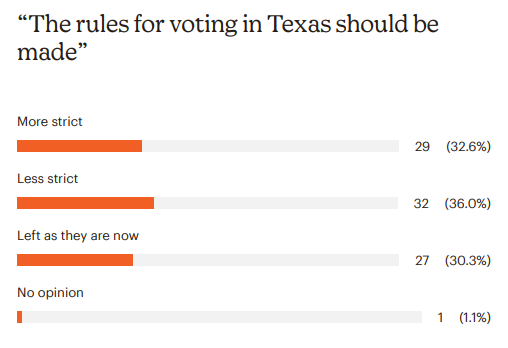Voters Weigh in on Legislature in Statewide and Local Polls
The Texas Legislature’s regular session ended in May, with promises of additional special sessions to address items Gov. Greg Abbott felt were neglected — including bills designed to address how we vote, critical race theory, and more.
Shortly after that, the Texas Tribune and the University of Texas conducted a statewide poll asking constituents how they felt about the progress (or lack of progress) made by the Legislature. We followed up with a small survey of our own to take the temperature of our readers about some of the same subjects.
We asked about the Legislature’s actions in the regular session and subjects we felt reasonably confident Abbott would include in his agenda for the special session in July.
Critical Race Theory
While a bill passed in regular session, Abbott made no bones that he felt restrictions on teaching critical race theory (which experts said is not taught in public schools) in the bill did not measure up and that he would be adding it back to the special session.

In statewide polling, voters were split on whether limiting how teachers discuss racism in public schools was a good idea — 44% said they did support limitations, while 44% said they did not.
(Read: Our ongoing coverage of the Texas legislature.)
In our poll, which surveyed 90 readers, 52% said they supported the use of teaching materials that address racism in history, while 31% did not.
Voting
Both the Tribune poll and ours asked voters the same question: “Do you think that the rules for voting in Texas should be made more strict, less strict, or left as they are now?”

On July 12, state Democrats left the state to deny a quorum in the Texas House. At the heart of the controversy are two companion bills — House Bill 3 and Senate Bill 1. Both address what the Republicans call election security, and what Democrats say is an attempt to prevent typically disenfranchised voters from heading to the polls by making it more difficult to do so.

Statewide, 35% said they felt laws needed to be more strict, 29% said they should be left as they are now, and 26% said they should be less strict.
Locally, our readers were divided almost equally in three ways, with 32.6% saying laws should be more strict, 30.3% saying they should stay the same, and 36% saying they should be less strict.
When asked how often they felt voter fraud was committed, 14% of statewide voters said often, while 6.7% of local readers said the same; 29% statewide said sometimes (32.6% in our poll); 37% statewide said rarely (51.7% local); and 7% said never (9% local).
Our local respondents were predominately White (94.4%) and said they watched the Legislature closely (40.4%) or somewhat closely (55.1%). Most identified as either Independent (33.7%), Republican (30.3%), or Democrat (22.5%).
See more of the results here.










The question about teaching racism is schools was misleading. Racism has been and should be taught in schools. Children need to understand it is wrong. But critical race theory or the 1619 project has proven to be flawed and is more dividing than uniting.